Tech
Sign up for our newsletter
We summarize the week's scientific breakthroughs every Thursday.
-
 Tech
TechSquirty gels bring the taste of cake and coffee to virtual reality
By squirting chemicals onto a person’s tongue to taste, a new device aims to replicate food flavors for fuller virtual experiences.
By Simon Makin -
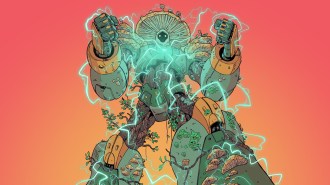 Tech
TechRobots are gaining new capabilities thanks to plants and fungi
Biohybrid robots made with plant and fungal tissue are more sensitive to their surroundings.
-
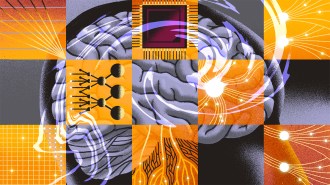 Artificial Intelligence
Artificial IntelligenceMore brainlike computers could change AI for the better
New brain-inspired hardware, architectures and algorithms could lead to more efficient, more capable forms of AI.
-
 Artificial Intelligence
Artificial IntelligenceAre AI chatbot ‘personalities’ in the eye of the beholder?
Defining AI chatbot personality could be based on how a bot “feels” about itself or on how a person feels about the bot they’re interacting with.
By Sujata Gupta -
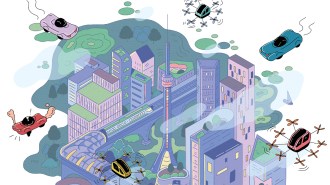 Tech
TechFlying cars could soon become a reality
Engineers have all the technology they need to make flying cars, but there are still some barriers to getting these sci-fi mainstays off the ground.
-
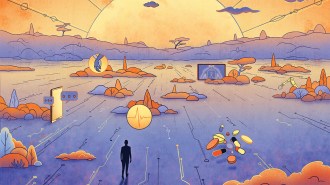 Health & Medicine
Health & MedicineAI could transform health care, but will it live up to the hype?
AI has the potential to make health care more effective, equitable and humane. Whether the tech delivers on these promises remains to be seen.
By Meghan Rosen and Tina Hesman Saey -
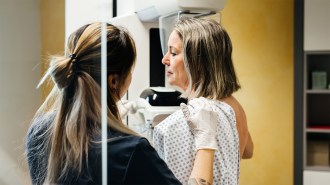 Health & Medicine
Health & MedicineAI helps doctors detect more breast cancer in the largest real-world study
AI is as good as clinicians at interpreting mammograms, a cancer study with nearly 500,000 participants in Germany suggests.
-
 Artificial Intelligence
Artificial IntelligenceAI sniffs out whiskey flavor notes as well as the pros
A machine learning algorithm identified the top five flavor notes in 16 types of whiskey. Each matched the aggregate of what a panel of human pros said.
-
 Artificial Intelligence
Artificial IntelligenceGenerative AI is an energy hog. Is the tech worth the environmental cost?
Generative AI and the hype around it has rung in excitement and alarm bells this year. Here’s how to consider climate, energy and AI's intersection.
-
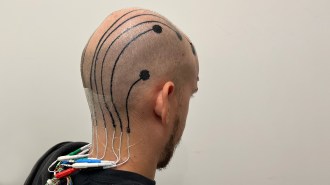 Neuroscience
NeuroscienceElectronic ‘tattoos’ offer an alternative to electrodes for brain monitoring
A standard EEG test requires electrodes that come with pitfalls. A spray-on ink, capable of carrying electrical signals, avoids some of those.
-
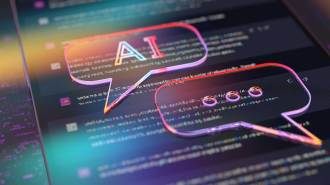 Artificial Intelligence
Artificial IntelligenceHere’s why turning to AI to train future AIs may be a bad idea
If future AI models are trained on AI-generated content, they could end up producing more bias and nonsense, researchers caution.
By Payal Dhar -
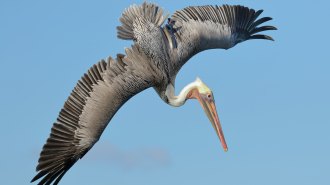 Tech
TechFeather-inspired airplane flaps could boost flight performance
Rows of flaps inspired by bird wing feathers improve airfoil performance by boosting lift, reducing drag and mitigating stall.
By Nikk Ogasa